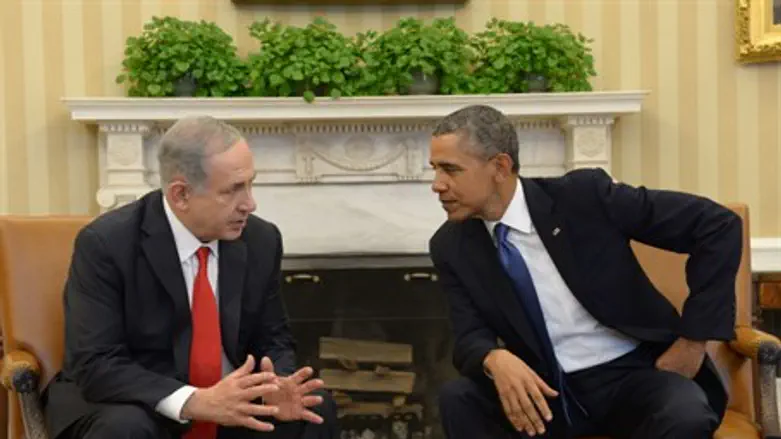
Amid reports that the Obama administration is refusing to share information regarding Iran with Israel as “punishment” for Prime Minister Binyamin Netanyahu’s upcoming speech before Congress, The Washington Post’s David Ignatius on Monday provided new details into the tensions between Jerusalem and Washington.
According to Ignatius’s column, the mistrust between the Obama administration and Netanyahu has widened even further in recent days because of suspicion in the United States that the Israeli prime minister has authorized leaks of details about the U.S. nuclear talks with Iran.
“The decision to reduce the exchange of sensitive information about the Iran talks was prompted by concerns that Netanyahu’s office had given Israeli journalists sensitive details of the U.S. position, including a U.S. offer to allow Iran to enrich uranium with 6,500 or more centrifuges as part of a final deal,” wrote Ignatius.
“Obama administration officials believed these reports were misleading because the centrifuge numbers are part of a package that includes the size of the Iranian nuclear stockpile and the type of centrifuges that are allowed to operate. A deal that allowed 500 advanced centrifuges and a large stockpile of enriched uranium might put Iran closer to making a bomb than one that permitted 10,000 older machines and a small stockpile, the administration argues,” he continued.
The Ignatius column comes a day after Israel’s Channel 2 News reported of the alleged “punishment” of Israel. Senior officials in both the State Department and White House denied the reports and Channel 2 itself later backtracked on it.
According to Ignatius, however, a discussion in Jerusalem on Monday between Philip Gordon, the Middle East director for President Obama’s National Security Council, and senior Israeli officials included Iran policy but not “the latest information about U.S. strategy in the talks.”
The journalist continued by saying that this latest breach in the U.S.-Israeli relationship began around January 12 with a phone call from Netanyahu. Obama asked the Israeli leader to hold fire diplomatically for several more months while negotiators explored whether Iran might agree to a deal that, through its technical limits on centrifuges and stockpiles, extended the breakout period that Iran would need to build a bomb to more than a year.
Netanyahu, according to Ignatius, is said to have responded that a year wasn’t enough and to have reverted to Israel’s hard-line insistence that Iran shouldn’t be allowed any centrifuges or enrichment.
Obama was concerned because the United States had shared with Israel its goal of a one-year breakout period since the beginning of the talks. The White House saw Netanyahu’s comment as a change, one that could potentially scuttle the negotiations. The Israeli response is that Netanyahu has always argued for “zero enrichment.”
The alleged leaks about the nuclear talks, according to Ignatius, came when several Israeli news outlets reported, citing Israeli officials, that the United States was ready to allow more than 6,500 to 7,000 centrifuges and had “agreed to 80 percent of Iran’s demands.”
Asked for comment, an official in Netanyahu’s office said, “The details of the last round of negotiations are known in Washington, Paris, London, Moscow, Beijing, Berlin and Tehran. It is perplexing that a decision would be made to try to keep those details a secret from Jerusalem when Israel is threatened by Iran with annihilation and its very survival could be threatened by a bad deal.”
Ignatius has in the past written about the complicated relations between Obama and Netanyahu and in late 2013 revealed that Obama had asked Netanyahu to stop being so vocal with his criticism of the interim nuclear deal reached between Iran and the West.
